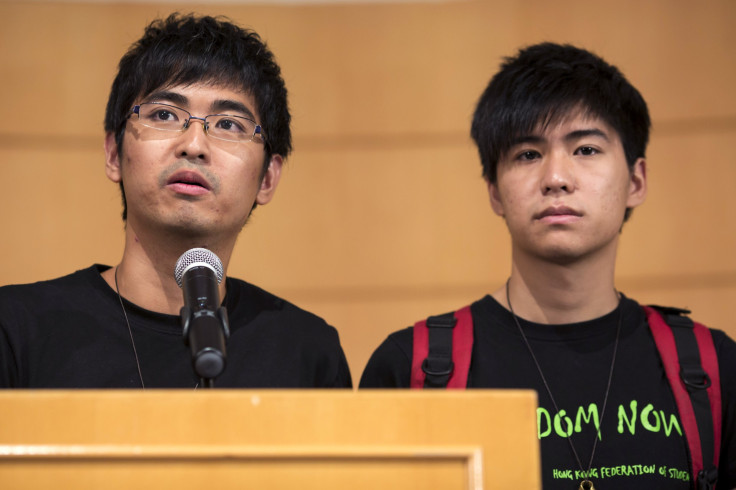Occupy Central: Hong Kong Student Protesters Book Flight To Beijing

Three Hong Kong student protesters have booked a flight to Beijing Saturday, angling to discuss the Occupy Central movement with top government officials. But their trip could end before it’s even begun, as the students might not be allowed entry into mainland China, according to recent reports.
Alex Chow, Eason Chung and Nathan Law from the Hong Kong Federation of Students, a group that has had a leading presence in organizing street demonstrations for the Occupy movement, said their requests to meet with top Hong Kong officials were denied. So now, they’re taking their plea for free elections in 2017 straight to China’s legislature, according to the Associated Press and Reuters.
“When those bridges between the Hong Kong government and Beijing rejected all our demands, we think they are not doing their due responsibility, so we’ll go ourselves,” Chung told the Associated Press on Friday. Chung and his fellow student leaders said they will fly out of Hong Kong on a Cathay Pacific flight to Beijing on Saturday at 5 p.m. If they are granted access into the capital, the trio will make their way to China’s legislature in an effort to meet with Chinese Premier Li Keqiang, the Associated Press reported.
Thousands of pro-democracy protesters have participated in Occupy Central demonstrations in Hong Kong since the movement began Sept. 28, and it has rapidly become the largest protest against Beijing in the last decade. Many schools, banks and businesses were forced to temporarily shut down due to the protests. Approximately 2,197 tents are currently pitched around Hong Kong’s government headquarters, according to a census conducted earlier this week. Although these numbers have withered, students such as Chow, Chung and Law are among a dedicated group of activists who continue to occupy the streets, according to Reuters.
In August, Beijing officials said all candidates must be vetted by a nominating committee of 1,200 members before being permitted to run in the 2017 elections, according to Reuters. The decision ignited frustration in Hong Kong, and the Occupy Central movement was born.
© Copyright IBTimes 2024. All rights reserved.











